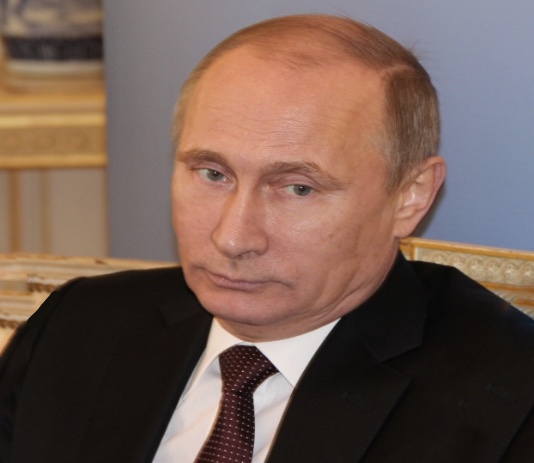Vladimir Putin. (Photo: Geopolitical News / EO).
by Lorenzo Pallavicini –
The attempt made by the leader of the Wagner paramilitary group, Prigozhin, to replace the command of the Russian regular armed forces, i.e. Defense Minister Shoigu and Commander Gerasimov, implemented in unprecedented ways in the Putin era, showed the world‘s chancelleries some cracks in the Russian political monolith, although it is clear that Prigozhin’s attempt did not have the support of the armed forces or even the secret services, to date still largely loyal to the current regime.
This episode gave new impetus to some European countries, in particular those most fearful of Moscow, i.e. the Baltic countries and Poland, to politically support the requests of the forum of free nations of Russia, considering that only a Russian Federation divided into many autonomous states can cease to be a military and political threat, considering today’s Russian government an imperialist state that has territorial expansionism in its DNA, also pursued in a military way.
This organization is made up of “movements within the Federation”, growing compared to the past, coming from every corner of Russia (Siberia, Urals, Ingria, Dagestan, Kaliningrad, etc.), but still small, unstructured and without relevant political referents in homeland. Their aim is to support, in a non-violent way, the “decolonization” of indigenous regions under Moscow and put an end to Russian imperialism led by Vladimir Putin.
For Moscow, these theories represent the worst possible scenario as the final outcome of the conflict in Ukraine, i.e. the disintegration of the unitary Russian state which would thus see, after the fall of the USSR in 1991, a new defragmentation into independent states where Moscow’s centralism would end up control only more a state with very limited borders and resources.
The project is not shared by all European countries, but the appearance of the first cracks in Putin’s maginot could favor further exploration of this thought, in the consideration that a Russia torn to pieces is more manageable in a post-war future, an eventuality that foresees a complete military defeat on the ground, including on the Crimean peninsula, essential for the Russian military leadership to have a real interest in overthrowing those who would have led Russia to the most serious military defeat since the failed invasion of Afghanistan in the 1980s.
It is in the Russian tradition to have regime changes following military defeats, ever since the disastrous Japanese-Russian war of the early twentieth century, the outcome of which was the fuse that lit the first Russian revolution of 1905 with the establishment of a parliament, the Duma, passing through the Afghan failure, which was decisive in making the Russians and also the politburo aware of the inevitable collapse of the Soviet system.
It is significant that even the European Parliament, under the aegis of the Conservative Reformist group of which the Polish Law and Justice Party is a majority member, officially hosted this forum in January, an indication of how part of Europe does not fear too much the consequences that could potentially result from a disintegration of the Russian state as we know it now.
This perspective does not seem to be supported by the real Western king maker, the United States, which have strong reservations about this possibility considering that the Asian part, the one richest in raw materials such as gas, oil and minerals, would end up more and more under the Chinese flu, real bogeyman for Washington.
Although the Biden administration is first for military supplies for Kiev, it is aware of the danger of a division of the Russian Federation into many autonomous states with a nuclear arsenal that would need to be located in an appropriate and safe way, considering it difficult, given the conditions policies, arriving at agreements such as those of the 1994 Budapest Memorandum in which Ukraine voluntarily gave up the nuclear warheads it had inherited from the former Soviet Union.
The future European elections of 2024, especially in the event of a political agreement between the Reformist Conservatives and the European Popular groups, could add further grist to the mill of the independent countries forum, especially if Poland continues to increase its political weight at the within the EU and NATO, maintaining a leading role in the MEP group of the ECR.
Although the issue of Russia’s defragmentation may not be on the agenda of the next NATO council, it will be interesting to see what attitude the Atlantic alliance will have towards Ukraine’s increasingly pressing requests for future NATO membership, for Kiev is the only possible guarantee that the Russian invasion cannot be repeated.
If the process for entry into NATO were to be simpler than expected, it would be a signal that NATO would no longer be afraid of Russian reactions, even towards what is more difficult for Putin to accept as a threat to Russian security, i.e. the entry of a nation like Ukraine into NATO, a move which would also imply that a possible Russian defragmentation as a natural consequence of a fall of the Russian regime is no longer considered a taboo.
To date, the forum of independent countries does not represent a threat to Putin’s system, since the idea that this system could really fall has not yet entered the majority of Western countries. However, supporters of a Russia “settled once and for all”, i.e. reduced in its area and sphere of influence with the creation of many new states, could increase and, especially if total military defeat for Moscow becomes a real possibility, there it would be fuel to pave the way for scenarios that are unthinkable today.
